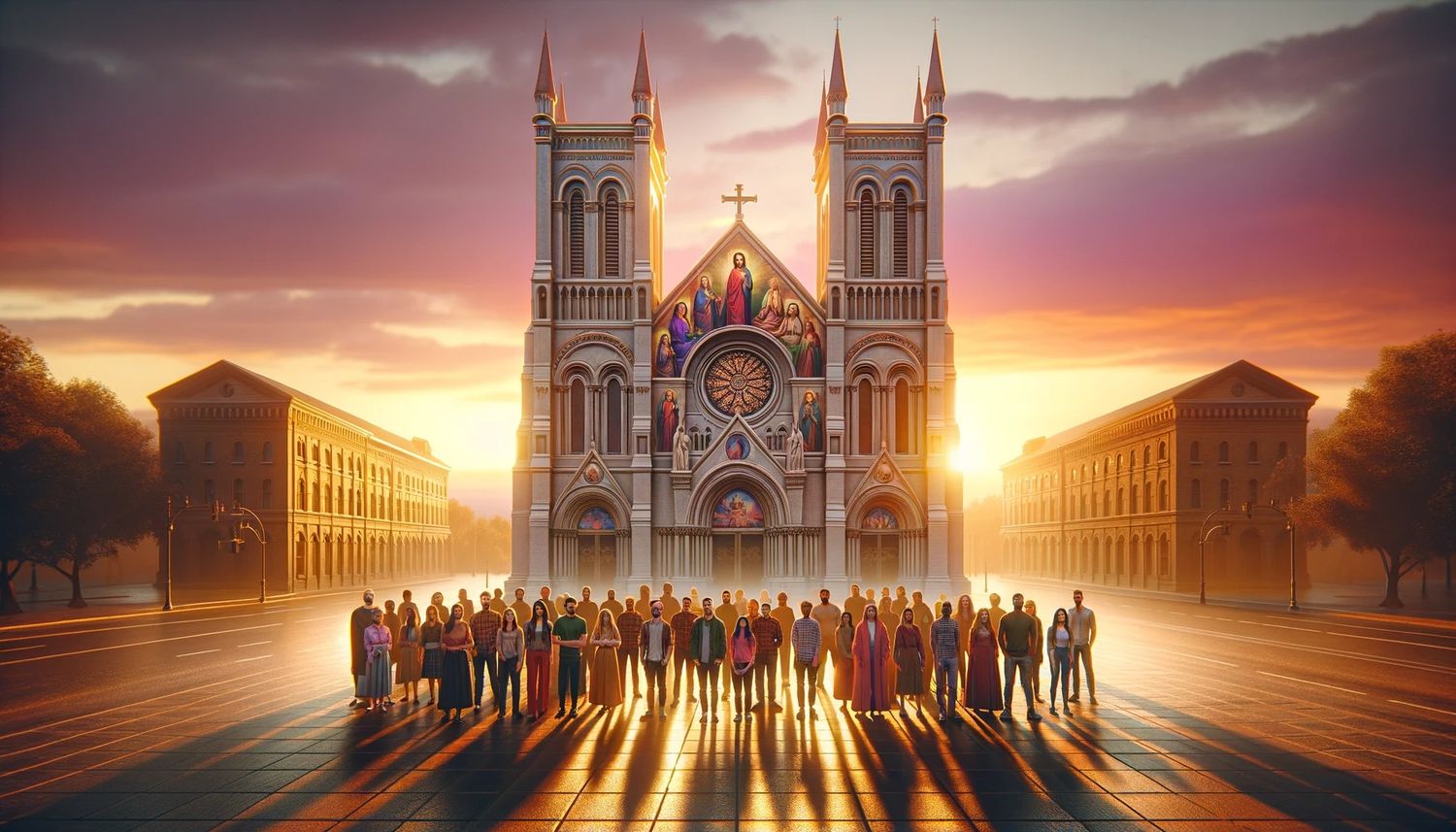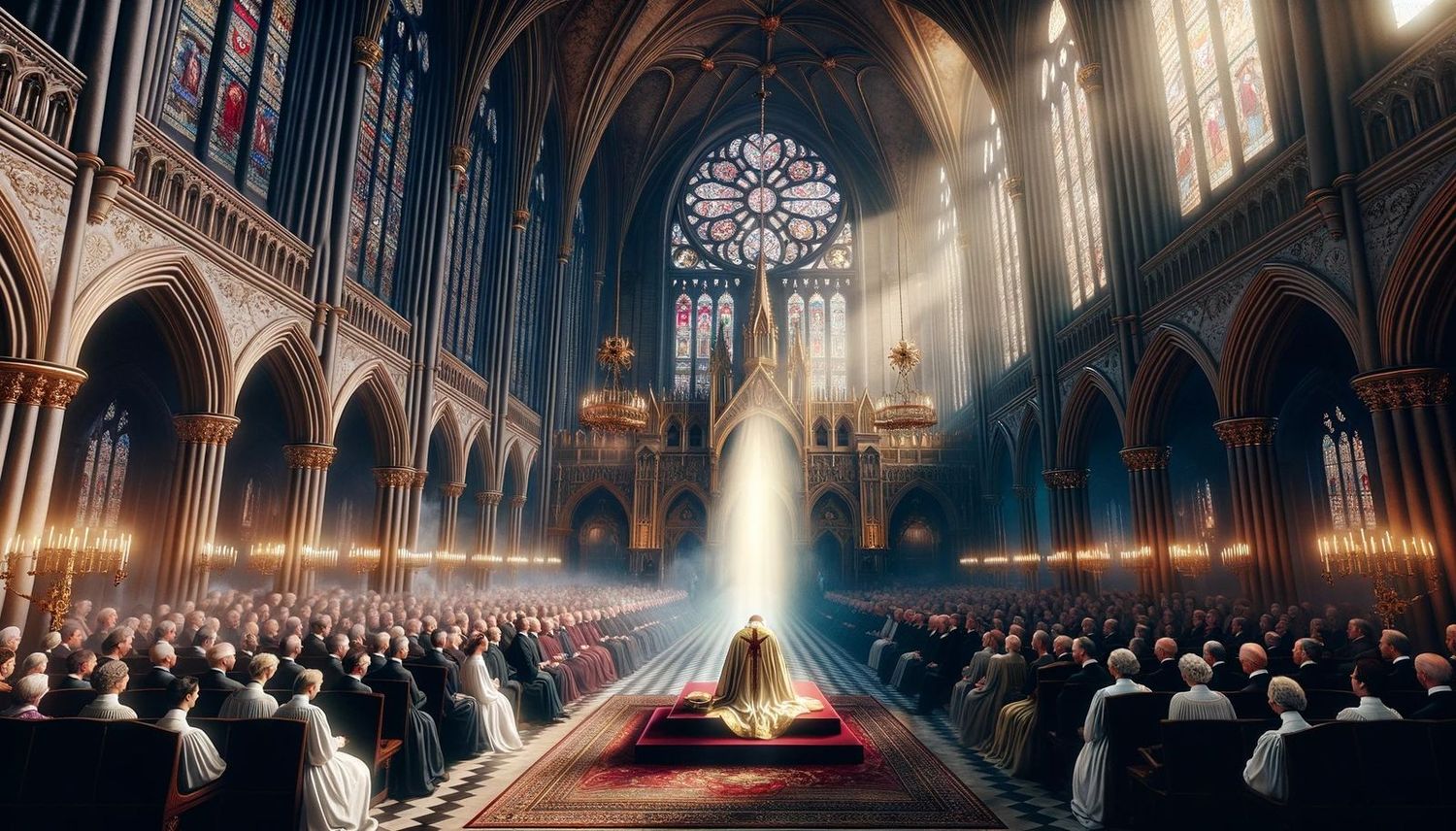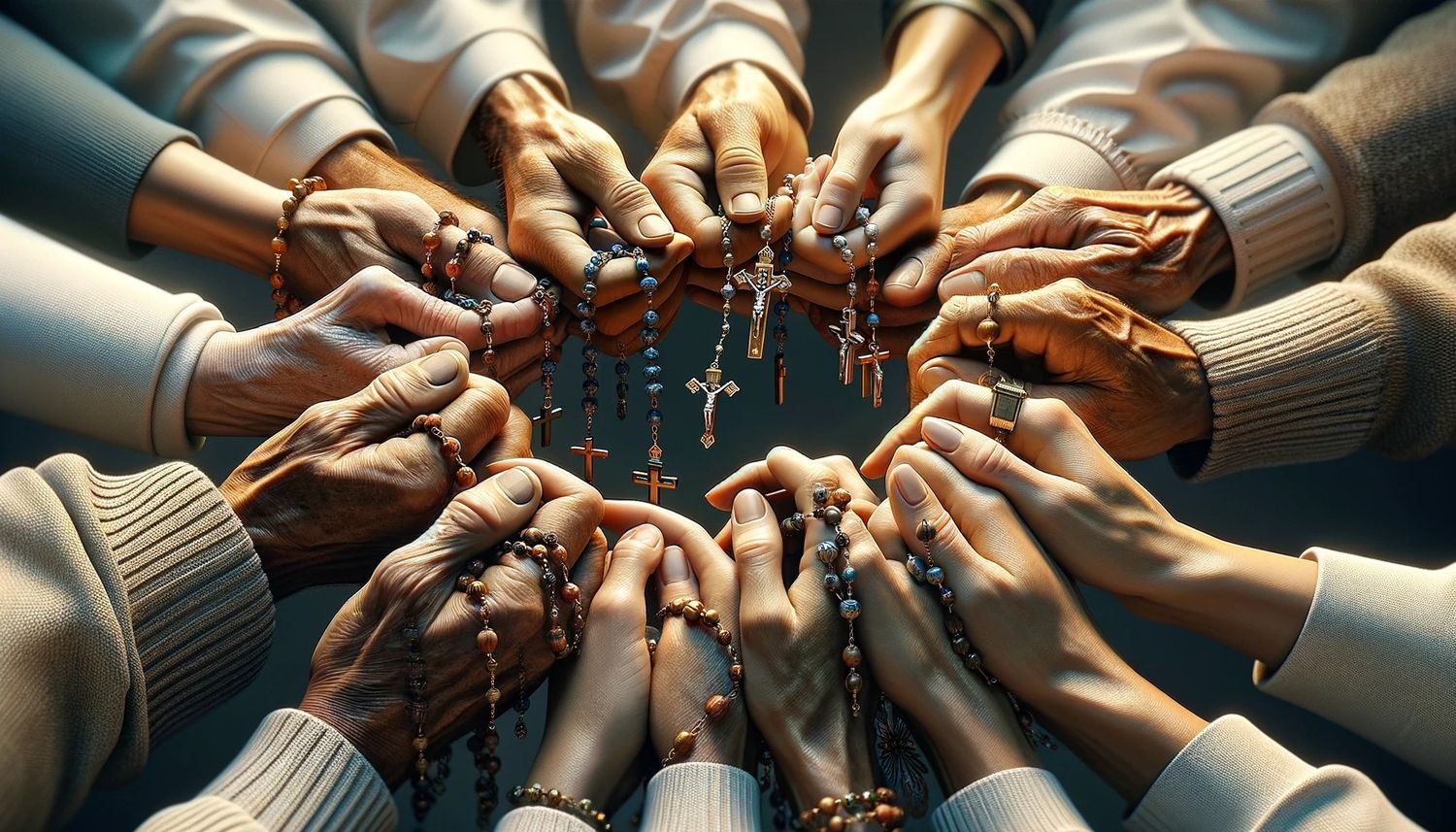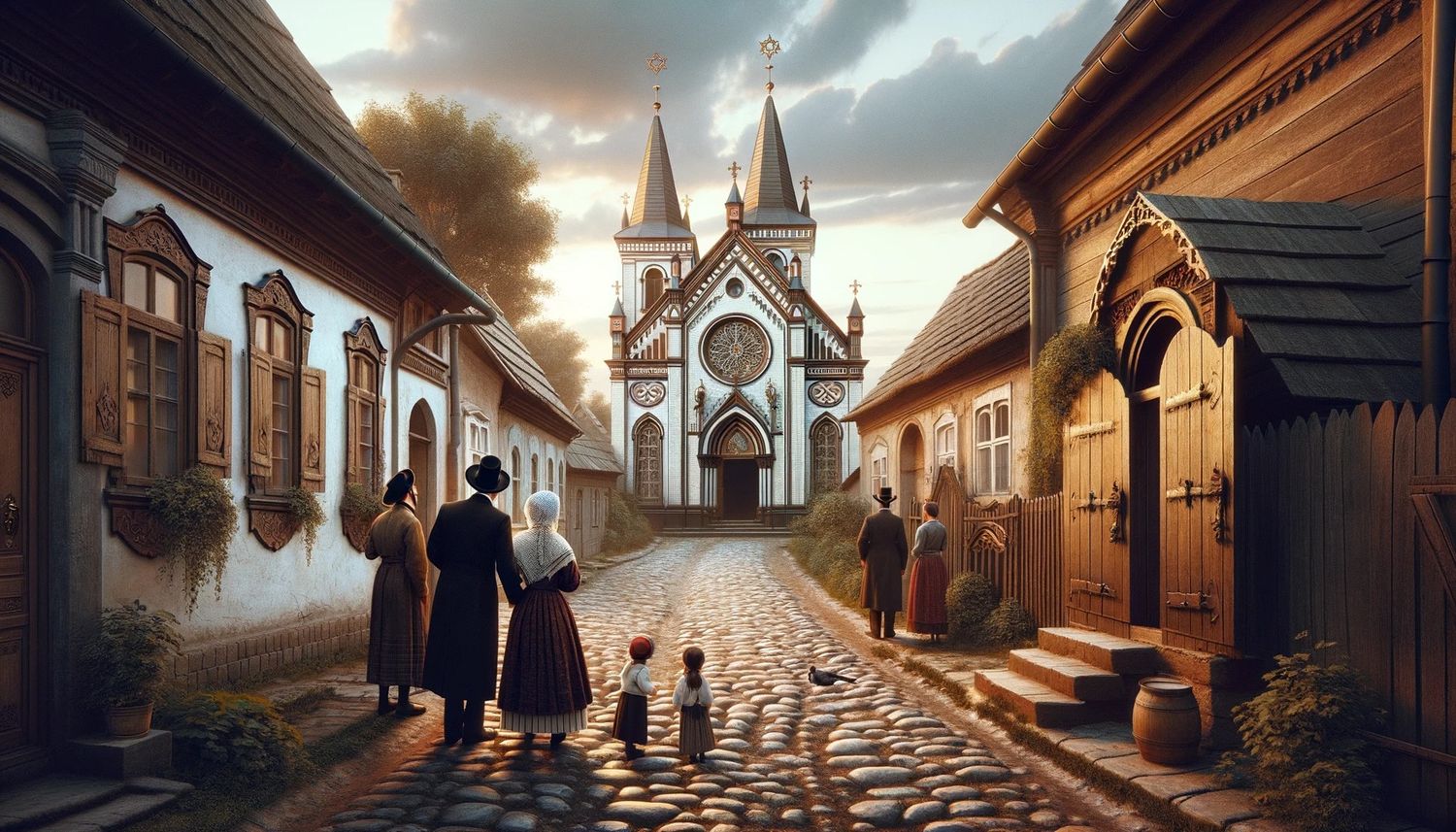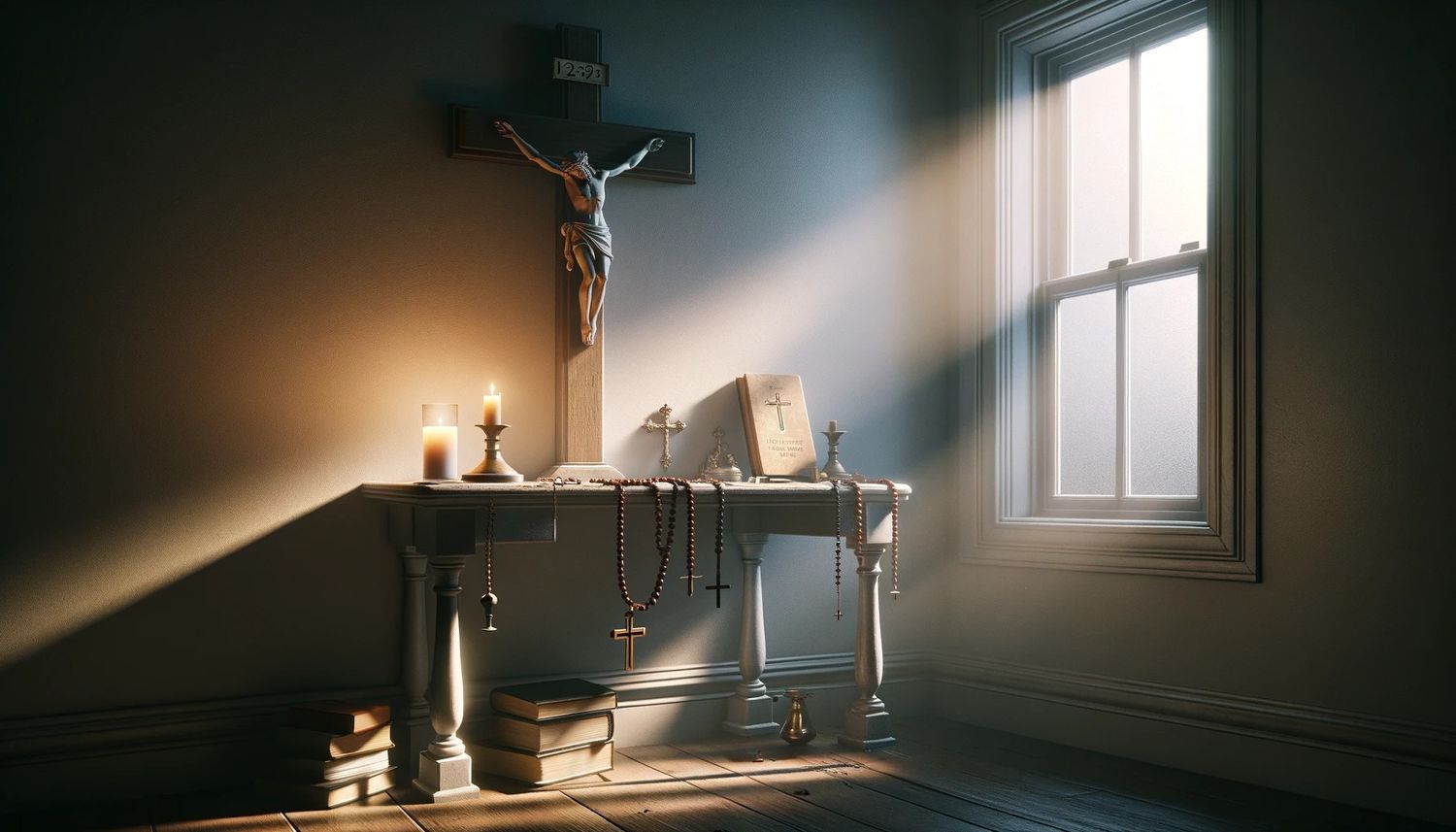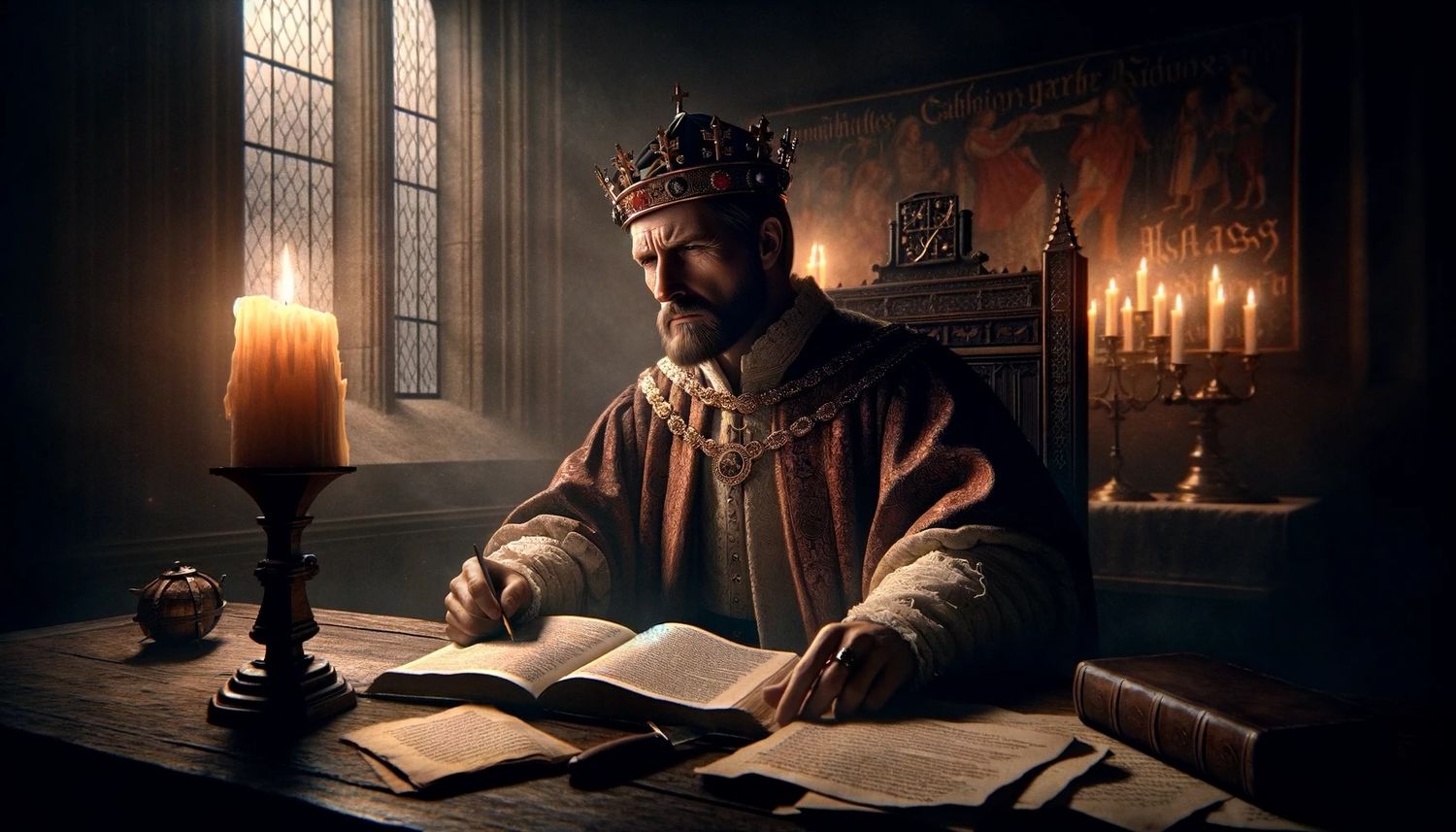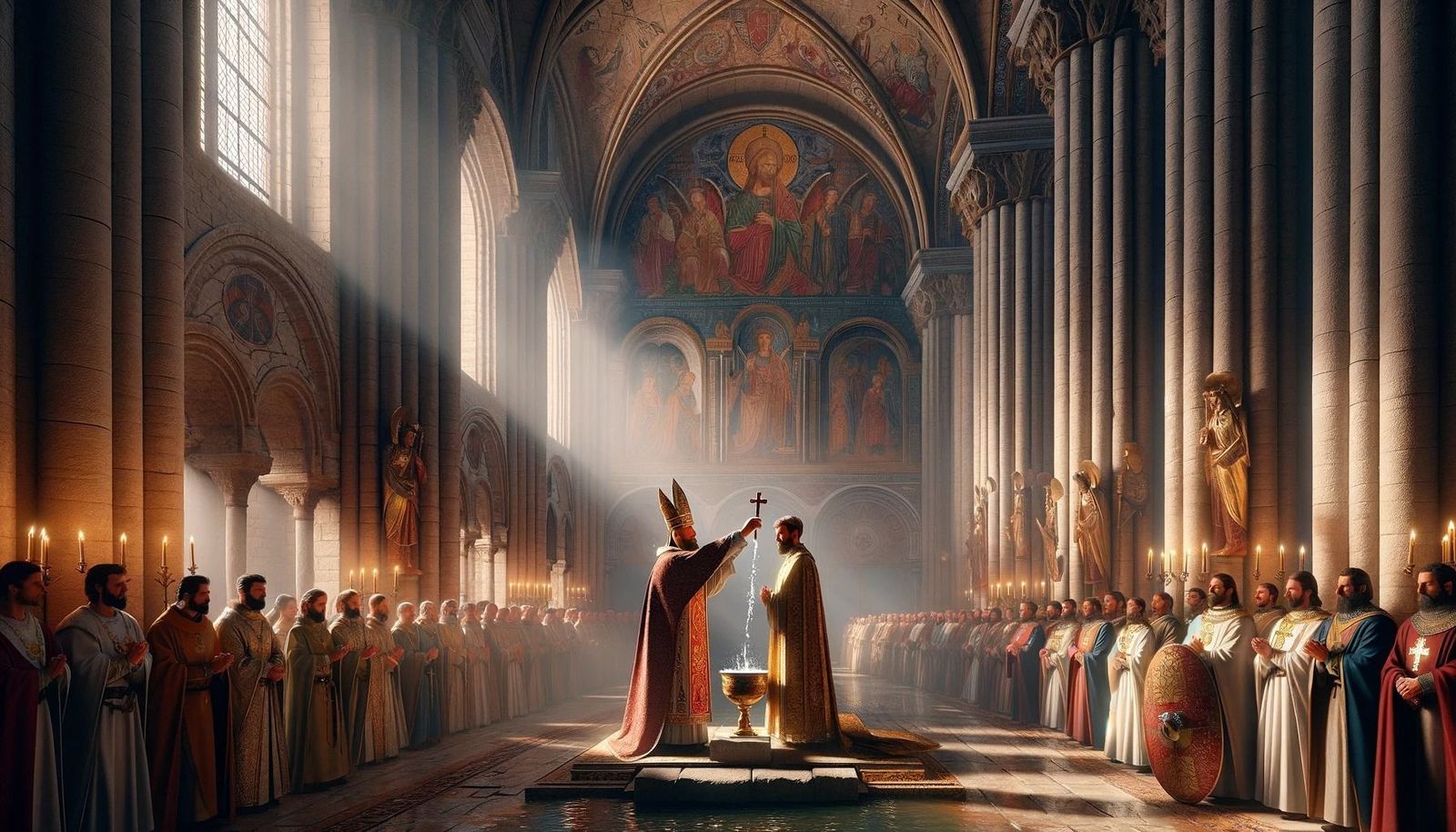Home>Theology and Spirituality>How Do Adults Convert To Catholicism
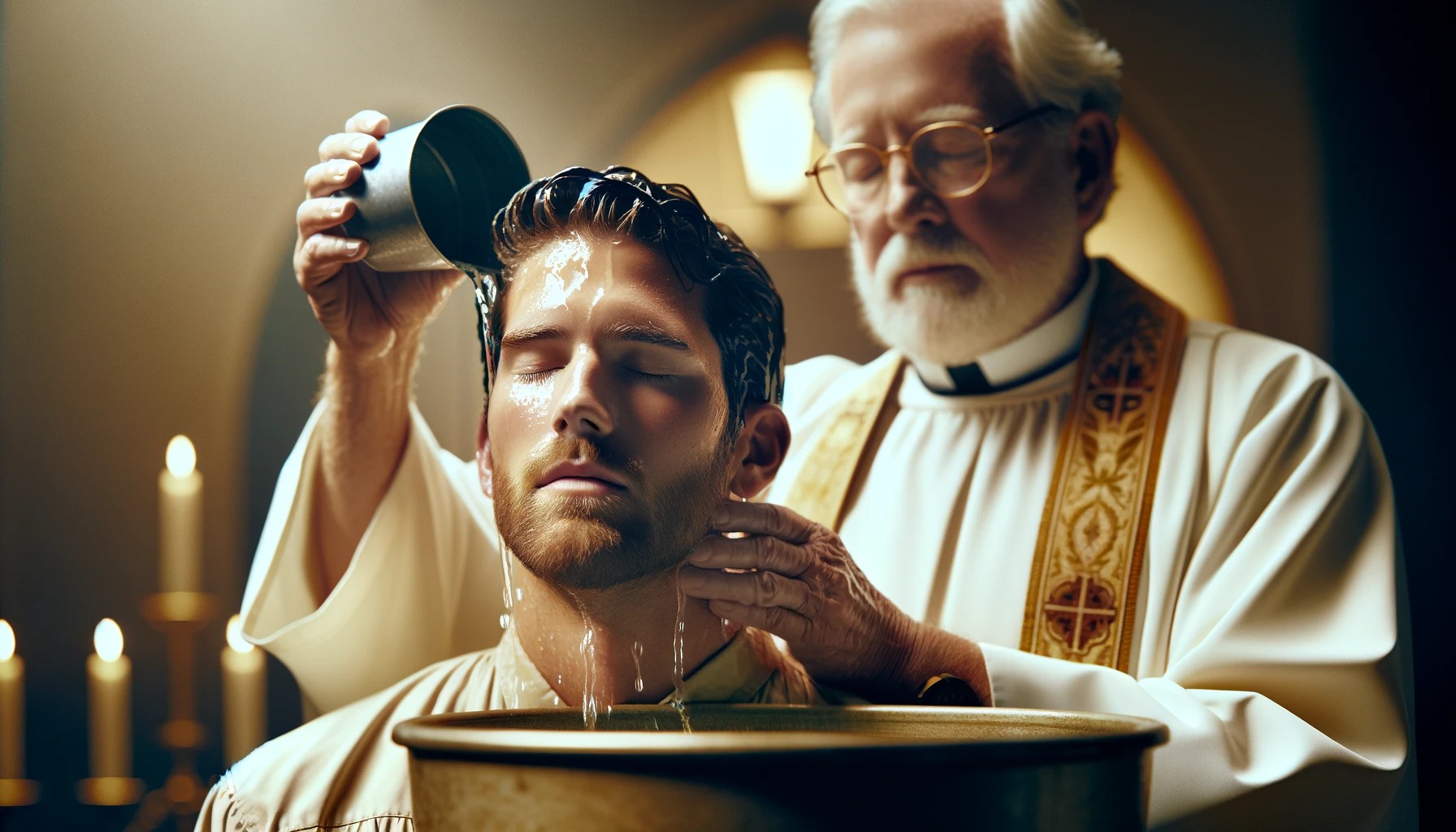

Theology and Spirituality
How Do Adults Convert To Catholicism
Published: February 17, 2024
Jason DeRose, Managing Editor at Christian.net, uses his expertise in religion and journalism to deepen understanding of faith's societal impacts. His editorial leadership, coupled with a strong academic background, enriches the platform’s diverse content, earning him recognition in both journalism and religious circles.
Learn how adults convert to Catholicism and explore the theology and spirituality behind this significant life change. Discover the process and significance of conversion.
(Many of the links in this article redirect to a specific reviewed product. Your purchase of these products through affiliate links helps to generate commission for Christian.net, at no extra cost. Learn more)
Table of Contents
Introduction
The decision to convert to Catholicism is a deeply personal and profound journey that many adults embark upon for a variety of reasons. Whether it stems from a spiritual awakening, a desire for community, or a longing for tradition and ritual, the path to embracing the Catholic faith is often marked by introspection, contemplation, and a search for deeper meaning.
For many individuals, the decision to convert to Catholicism represents a significant shift in their spiritual and religious identity. It may involve a departure from the beliefs and practices they have held for years, or it could be a continuation of a spiritual quest that has led them to explore different faith traditions. Regardless of the specific circumstances, the decision to convert to Catholicism is a pivotal moment in the lives of those who choose to embrace the faith.
This article will explore the multifaceted factors that lead adults to convert to Catholicism, shedding light on the diverse motivations and influences that shape this transformative journey. From the role of personal faith and spiritual exploration to the impact of family, community, and Catholic traditions, each aspect contributes to the rich tapestry of experiences that culminate in the decision to embrace the Catholic faith. Through a deeper understanding of these factors, we can gain insight into the profound significance of adult conversion to Catholicism and the myriad paths that lead individuals to this momentous decision.
Read more: How To Convert A Muslim To Catholicism
Factors that Lead Adults to Convert to Catholicism
The decision to convert to Catholicism as an adult is often influenced by a complex interplay of factors that encompass spiritual, emotional, and communal dimensions. One of the primary catalysts for adult conversion to Catholicism is a profound spiritual awakening or a deep-seated yearning for a more profound connection with the divine. Individuals may find themselves drawn to the rich theological heritage and spiritual depth of the Catholic faith, seeking solace in its sacramental traditions and the contemplative nature of Catholic spirituality. This spiritual quest often leads adults to explore the teachings of the Catholic Church, finding resonance in its emphasis on compassion, social justice, and the pursuit of a meaningful, virtuous life.
Furthermore, the influence of personal relationships and community dynamics plays a pivotal role in the decision to convert to Catholicism. Adults may be inspired by the faith and devotion of Catholic friends, family members, or mentors, whose lives exemplify the transformative power of Catholic beliefs and practices. The sense of belonging and communal support offered by the Catholic community can be a compelling factor for adults seeking a spiritual home where they can cultivate meaningful connections and find solidarity in their faith journey.
The intellectual and philosophical appeal of Catholicism also holds sway for many adults contemplating conversion. The rich intellectual tradition of Catholic theology, philosophy, and ethics often resonates with individuals who seek a robust framework for understanding the complexities of existence and morality. The profound intellectual heritage of Catholicism, coupled with its openness to dialogue and inquiry, can be a magnet for adults who yearn for a faith that engages both the heart and the mind.
Moreover, the allure of Catholic rituals, liturgy, and sacraments often captivates adults who are drawn to the beauty, symbolism, and time-honored practices that define Catholic worship. The sacramental life of the Church, including the Eucharist, baptism, and reconciliation, holds a profound appeal for those seeking a tangible and transformative encounter with the divine. The aesthetic richness of Catholic traditions, from sacred art and architecture to the rhythm of the liturgical year, offers a sensory and contemplative dimension that resonates deeply with many adults on their spiritual journey.
In essence, the decision to convert to Catholicism as an adult is shaped by a confluence of spiritual, relational, intellectual, and experiential factors that converge to create a compelling narrative of faith seeking and discovery. Each individual's path to embracing the Catholic faith is unique, reflecting a deeply personal and transformative journey marked by the interplay of diverse influences and motivations.
The Role of Personal Faith and Spiritual Journey
The decision to convert to Catholicism as an adult is often intricately intertwined with the individual's personal faith and spiritual journey. This pivotal transition represents a profound quest for deeper meaning, a search for spiritual fulfillment, and a yearning for a transformative encounter with the divine. At the heart of this journey lies the deeply personal and introspective exploration of one's beliefs, values, and existential questions, which ultimately culminates in the embrace of the Catholic faith.
For many adults, the decision to convert to Catholicism is catalyzed by a profound spiritual awakening—a moment of epiphany that ignites a longing for a more profound connection with the divine. This awakening often propels individuals on a quest for spiritual truth and authenticity, prompting them to seek out a faith tradition that resonates with the deepest yearnings of their soul. The Catholic Church, with its rich theological heritage, contemplative spirituality, and emphasis on compassion and social justice, often becomes a beacon of hope and spiritual nourishment for those embarking on this transformative journey.
The spiritual odyssey of adult conversion to Catholicism is marked by a deep sense of introspection and discernment, as individuals grapple with existential questions, confront their doubts and fears, and wrestle with the complexities of faith and belief. This inner pilgrimage is characterized by a profound yearning for spiritual growth, a thirst for divine grace, and a longing for a faith that provides solace, guidance, and a sense of purpose. The personal faith and spiritual journey of adults who convert to Catholicism are imbued with a sense of profound significance, as they navigate the terrain of doubt and conviction, uncertainty and revelation, ultimately finding a home in the embrace of the Catholic faith.
Moreover, the role of personal faith and spiritual journey in adult conversion to Catholicism encompasses a deep yearning for a faith community that offers support, solidarity, and a sense of belonging. The Catholic Church, with its rich tapestry of communal rituals, liturgical celebrations, and opportunities for fellowship, provides a nurturing environment where individuals can cultivate meaningful connections, find spiritual companionship, and embark on a shared journey of faith. This communal dimension of the spiritual quest underscores the profound impact of personal faith and spiritual exploration in shaping the decision to convert to Catholicism, as individuals seek a faith community that mirrors and enriches their own spiritual journey.
In essence, the role of personal faith and spiritual journey in adult conversion to Catholicism is a deeply introspective and transformative process, marked by a profound yearning for spiritual truth, a search for communal support, and a quest for a faith that resonates with the deepest aspirations of the human spirit. This journey represents a sacred odyssey of the soul, a pilgrimage of faith and self-discovery that culminates in the embrace of the Catholic faith.
Influence of Family and Community
The influence of family and community plays a pivotal role in the decision of adults to convert to Catholicism. Family dynamics, cultural heritage, and communal relationships often exert a profound impact on an individual's spiritual journey, shaping their beliefs, values, and religious affiliations. For many adults, the embrace of Catholicism is intricately woven into the fabric of familial traditions, generational ties, and communal bonds, creating a rich tapestry of influence that shapes their spiritual path.
Within the context of family, the influence of parents, grandparents, and extended relatives can be a significant catalyst for adult conversion to Catholicism. The religious upbringing, values, and traditions instilled by family members often lay the foundation for an individual's spiritual identity, creating a sense of continuity and heritage that spans generations. The familial embrace of Catholicism, with its rituals, prayers, and cultural expressions, can foster a deep sense of connection and belonging, compelling adults to seek a spiritual home within the rich tapestry of the Catholic faith.
Moreover, the communal dimension of Catholicism, exemplified through parish life, religious gatherings, and shared rituals, offers a nurturing environment where adults can find solidarity, support, and a sense of belonging. The communal bonds forged within the Catholic community provide a framework for spiritual growth, mutual encouragement, and the cultivation of meaningful relationships that enrich the journey of adult conversion. The warmth of communal fellowship, the shared celebrations of faith, and the collective pursuit of spiritual truth create a compelling allure for adults seeking a vibrant and inclusive faith community.
Furthermore, the influence of family and community extends beyond personal relationships to encompass cultural and societal dynamics that shape an individual's worldview and spiritual inclinations. Cultural traditions, social norms, and community values often intersect with the decision to convert to Catholicism, offering a broader context within which adults navigate their spiritual quest. The cultural resonance of Catholicism, its artistic expressions, and its enduring presence in the fabric of society can serve as a beacon of spiritual inspiration, drawing adults into the embrace of a faith that reflects and enriches their cultural and communal identity.
In essence, the influence of family and community in adult conversion to Catholicism underscores the profound impact of generational heritage, communal relationships, and cultural resonance in shaping an individual's spiritual journey. This multifaceted influence weaves a rich tapestry of familial traditions, communal bonds, and cultural heritage, creating a compelling narrative of spiritual seeking and communal belonging that culminates in the embrace of the Catholic faith.
The Appeal of Catholic Traditions and Sacraments
The appeal of Catholic traditions and sacraments holds a profound allure for adults considering conversion to Catholicism. Rooted in centuries of rich history, symbolism, and spiritual significance, these traditions and sacraments form a cornerstone of the Catholic faith, offering a tapestry of rituals and practices that resonate deeply with individuals on their spiritual journey.
Catholic traditions, steeped in symbolism and ritualistic beauty, evoke a sense of timelessness and transcendence that captivates the hearts and minds of those drawn to the faith. From the reverent splendor of the Mass to the meditative rhythm of the liturgical calendar, Catholic traditions infuse the spiritual journey with a sense of sacred continuity, inviting adults to partake in a living legacy of faith that spans generations. The aesthetic richness of Catholic traditions, manifested in sacred art, architecture, and liturgical music, creates a sensory tapestry that elevates the worship experience, evoking a profound encounter with the divine.
Furthermore, the sacramental life of the Catholic Church, encompassing the Eucharist, baptism, reconciliation, and other sacred rites, holds a transformative appeal for adults seeking a tangible and intimate connection with the divine. The sacraments serve as visible signs of God's grace, offering moments of profound encounter and spiritual renewal that resonate deeply with the human spirit. The Eucharist, in particular, stands as the pinnacle of Catholic sacramental life, inviting adults into a sacred communion with Christ and the faith community, nourishing their souls and fostering a deep sense of spiritual sustenance.
The appeal of Catholic traditions and sacraments extends beyond their aesthetic and experiential dimensions to encompass a profound sense of spiritual nourishment and transformative encounter. Adults drawn to the Catholic faith often find solace, healing, and spiritual renewal through the sacramental life of the Church, experiencing a profound sense of belonging and communion that enriches their spiritual journey.
In essence, the appeal of Catholic traditions and sacraments represents a profound invitation to adults seeking a faith that embraces the fullness of the human experience, offering a tapestry of rituals, symbols, and sacramental encounters that resonate deeply with the longing of the human heart for transcendence, beauty, and spiritual nourishment. This appeal forms a compelling facet of the Catholic faith, drawing adults into a transformative journey of encounter, communion, and spiritual renewal within the rich tapestry of Catholic traditions and sacraments.
Read more: How To Convert To Catholicism For Marriage
The Impact of Catholic Education and Outreach
Catholic education and outreach play a pivotal role in shaping the decision of adults to convert to Catholicism. The multifaceted impact of Catholic educational institutions, spiritual formation programs, and outreach initiatives extends far beyond the imparting of knowledge; it encompasses a transformative journey of faith, intellectual enrichment, and communal engagement that resonates deeply with individuals seeking a deeper connection with the Catholic faith.
Catholic educational institutions, ranging from parochial schools to universities, offer a holistic approach to intellectual and spiritual formation, nurturing the hearts and minds of students within the rich tapestry of Catholic teachings, values, and traditions. For adults considering conversion to Catholicism, these educational settings provide a fertile ground for intellectual exploration, spiritual growth, and a deepening understanding of the Catholic faith. The rigorous academic curriculum, infused with Catholic theology, ethics, and philosophy, offers a robust framework for engaging with the intellectual heritage of the Church, fostering a deep appreciation for the richness and depth of Catholic thought.
Moreover, the spiritual formation programs offered by Catholic institutions and parishes provide adults with opportunities for contemplation, prayer, and theological reflection, nurturing a profound encounter with the spiritual dimensions of the Catholic faith. These programs often serve as catalysts for spiritual awakening, offering adults a space for introspection, discernment, and the cultivation of a vibrant, living faith. Through retreats, spiritual direction, and formative experiences, adults are invited into a transformative journey of spiritual growth, deepening their understanding of Catholic spirituality and fostering a profound sense of spiritual enrichment.
In addition, the outreach initiatives of the Catholic Church, encompassing social services, charitable endeavors, and missionary work, offer adults a tangible expression of the Church's commitment to compassion, justice, and the alleviation of human suffering. These outreach efforts provide adults with opportunities to actively engage in acts of mercy, solidarity, and social transformation, embodying the core values of Catholic social teaching. Through their involvement in outreach initiatives, adults considering conversion to Catholicism witness firsthand the transformative impact of the Church's commitment to serving the marginalized, advocating for justice, and fostering a culture of solidarity and compassion.
In essence, the impact of Catholic education and outreach on adults considering conversion to Catholicism is a multifaceted journey of intellectual enrichment, spiritual formation, and communal engagement. These transformative experiences within the realm of Catholic education and outreach serve as compelling catalysts for adults seeking a faith that integrates intellectual rigor, spiritual depth, and a commitment to social justice, ultimately shaping their decision to embrace the Catholic faith.
Conclusion
The decision to convert to Catholicism as an adult represents a profound and multifaceted journey, shaped by a confluence of spiritual, relational, intellectual, and experiential factors. From the deeply personal quest for spiritual truth and belonging to the influence of family, community, and the rich tapestry of Catholic traditions and sacraments, each facet contributes to the transformative narrative of adult conversion to Catholicism.
At the heart of this journey lies the deeply personal and introspective exploration of one's beliefs, values, and existential questions, culminating in the embrace of the Catholic faith. The spiritual awakening, yearning for a more profound connection with the divine, and the search for communal support and belonging form the cornerstone of this transformative odyssey. The influence of family, cultural heritage, and communal relationships weaves a rich tapestry of familial traditions, generational ties, and communal bonds, creating a compelling narrative of spiritual seeking and communal belonging that culminates in the embrace of the Catholic faith.
Moreover, the intellectual and philosophical appeal of Catholicism, coupled with its openness to dialogue and inquiry, serves as a magnet for adults who yearn for a faith that engages both the heart and the mind. The rich intellectual tradition of Catholic theology, philosophy, and ethics often resonates with individuals seeking a robust framework for understanding the complexities of existence and morality, further enriching their spiritual journey.
The appeal of Catholic traditions and sacraments, steeped in centuries of rich history, symbolism, and spiritual significance, offers a tapestry of rituals and practices that resonate deeply with individuals on their spiritual journey. The sacramental life of the Catholic Church, with its transformative encounters and profound spiritual nourishment, serves as a compelling invitation for adults seeking a tangible and intimate connection with the divine.
Furthermore, the impact of Catholic education and outreach, encompassing intellectual enrichment, spiritual formation, and communal engagement, serves as a transformative catalyst for adults considering conversion to Catholicism. These multifaceted experiences within the realm of Catholic education and outreach nurture a profound encounter with the spiritual dimensions of the Catholic faith, fostering a deep appreciation for its richness and depth.
In essence, the decision to convert to Catholicism as an adult represents a sacred odyssey of the soul, a pilgrimage of faith and self-discovery that culminates in the embrace of the Catholic faith. It is a testament to the transformative power of spiritual seeking, communal belonging, and the profound encounter with the divine, shaping the lives and hearts of those who embark on this profound journey of faith.


